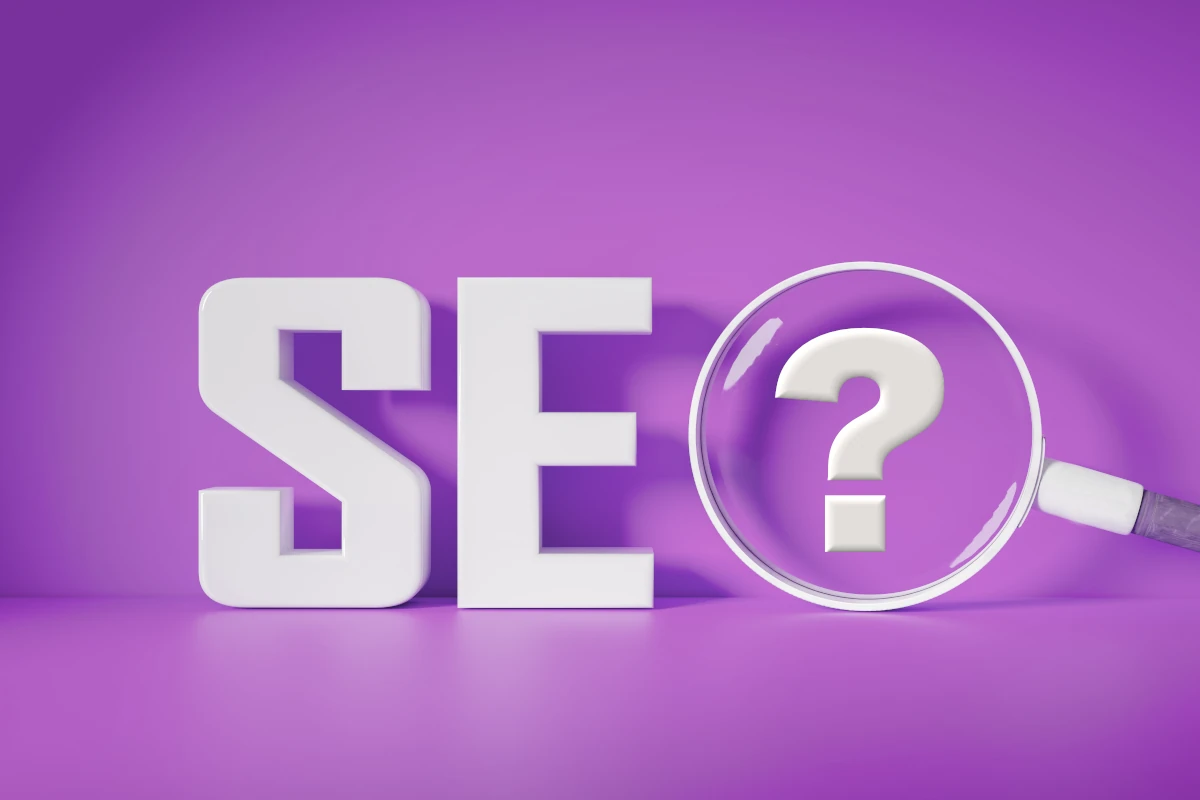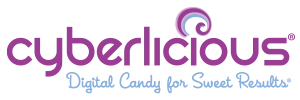
What Is On-Page & Off-Page SEO?
The SEO Balancing Act: On-Page vs. Off-Page
Imagine your website as a delicious candy store. On-page SEO focuses on making your shelves visually appealing and your descriptions clear, ensuring customers can easily find the treats they crave. Off-page SEO, on the other hand, is like building a reputation for the tastiest treats in town. Both strategies are crucial for attracting customers (or in the SEO world, search traffic) and achieving long-term success. It’s all good, we’ll break down each approach and show you how to create the perfect SEO recipe!
On-Page SEO & Off-Page SEO
Don’t use one without the other.
Nowadays, it’s almost a given that users expect the right answer to show at the top of Google and other search engines. Let’s get real, they likely aren’t scrolling very far either.
Ranking at the top of the SERP can be hugely beneficial for businesses, as it makes it much easier to draw new customers. Investing time and effort into devising an effective SEO strategy is one of the best decisions any business can make.
When it comes to creating an effective SEO campaign, two distinct strategies are required: on-page SEO and off-page SEO. Both of these approaches are essential for success, but they involve vastly different techniques:
- On-page SEO is the practice of optimizing webpages to rank higher on search engines, and includes optimizations to visible content and the HTML source code. Basically, it focuses more on what your page/site is about. Per our SEO expert, on-page SEO is all about what you can control!
- Off-page SEO embodies any efforts implemented outside of a website to improve its search engine rankings, and is more so geared toward how authoritative and popular your site is.

What is On-Page SEO?
All you need to know.
If you want to improve the visibility of your website on the SERP, the key is to focus your efforts towards optimizing its content. You guessed it, the on-page SEO. It involves elements such as keyword selection, HTML tags, page titles, and mobile optimization. All of these are essential for successful search engine optimization.
Basically, it’s following all the guidelines within Google Search Essentials for Developers and SEO Specialists beginning with the SEO Starter Guide. Lastly, don’t forget to keep Spam Policies in mind. You don’t want to put yourself in a predicament that is hard to climb out of.
To make it easier for you, we break the different aspects of on-page SEO down below.
Target Keywords
SEO the right way means that using the right keywords—those that match up with user search queries—are essential. The purpose of this is so that a website can rank higher in search results and become more visible. So, research, research, research.
Resources: Google has both Google Trends, and if you have a Google Ads account, Keyword Planner.
Title Tags
The title tag appears on the search engine results pages (SERP) and should grab attention while also informing users what your page is about. Remember, keep it short ‘n sweet and don’t stuff your keywords.
HTML Example:
<title>What Is On-Page & Off-Page SEO?</title>
URL structure
The URL slug is the part of the URL that’s unique to the page and it should be concise, clear, and descriptive. Include keywords if possible, but don’t overdo it, and keep the URL short!
Pro Tip: Do NOT go around and change old URLs unless you plan on redirecting your old ones to your new ones. You don’t want to break your website.
Headings (H1)
Headlines are often the largest words on a page, and therefore they are important. Use your target keywords in the headings of each web page, but only when it accurately reflects what the page contains. Additionally, Make sure that only one H1 heading is used per page; all other headers should be either H2 or H3.
Note: Your H1 heading and the Title tag are NOT the same even if they read the same.
Alt Text
Alt text is a written image description that appears in the page’s code. It plays an important role for those with vision impairments and keeps your website compliant with WCAG.
Similarly, search engines crawl through pictures too. By adding relevant keywords while accurately describing them helps search engines recognize the page’s content.
Quality Content
Content is king. Useful content that is. In fact, Google continuously focuses on updates that prioritize getting high-quality content in front of searchers. Consider the originality, accuracy, length, readability, tone, and format of your content.
Useful content to visitors is essential in keeping them engaged with your website.
Meta Description
Meta descriptions, which are found below the title, are the page description that appears in the SERP. They are an essential part of on-page optimization as they can help to make a website stand out on the search engine results pages.
Although meta descriptions are not directly linked to rankings, having one that is attractive and engaging can lead to more clicks.
Internal Linking
Internal links are links between pages on your own website and they are a great way to help Google and users navigate around.
With proper on-page SEO, search engines are able to index the webpages, understand the content of your website, and make it easy for them to find their way around. This in turn helps boost your rankings in search engine results.
Schema Markup
Including structured data can be a great way to provide Google with more information about the content of a page.
This can result in the appearance of rich results on SERPs, such as recipes, how-to instructions, and more. These types of rich results often appear at, or near the top, of search engine pages and usually have higher click-through rates than normal organic listings.
Core Web Vitals
User experience is important for the long-term success of a website.
Google has identified Core Web Vitals as a set of indicators that are essential for any web visitor’s journey. These metrics measure aspects such as the page’s visual stability (CLS), loading performance (LCP) and interactivity (FID) – all key components in creating an enjoyable and easy-to-navigate website.
Page Load Speed
Websites that load quickly are preferred by both users and search engines. Even the slightest delay can cause visitors to abandon your page. Use Google’s PageSpeed Insights tool to analyze your website.
Some reasons for a slow page include large amounts of HTML, large Javascript or CSS files, and even slow servers. We recommend having control over the sever to help improve performance.
Mobile-Friendly
Over 55% of searches are conducted on mobile devices. As such, when assessing a page’s quality and its rankings, Google primarily looks at the mobile version. Additionally, it is important to consider the mobile user experience as well.
Use this Mobile-Friendly Test to find out if your page delivers a good user experience on mobile and get in-depth information about the performance.
What is Off-Page SEO?
Down to the nitty-gritty.
Off-page SEO involves a set of techniques and approaches used to promote content on external websites across the web. It’s all about getting your website, business and/or brand name out there for others to talk about. Essentially, increasing your authority.
Alright, let’s tackle the different off-page SEO strategies that you might want to consider implementing.
Pro Tip: Don’t skimp on the off-page SEO, it’s not just about what on-page SEO can do for your business. Check out our article to learn about what to avoid when developing a search optimized website.

Inbound Links
Link building is synonymous with off-page SEO. While it’s one of the most common strategies for improving off-page SEO, we believe link building is essentially dead. Why would artificial intelligence require a link to rate a website? Answer: it doesn’t.
Quality over quantity. Link quality has become the focus for both SEO professionals and content creators alike. If you would still like to work on link building strategies, stick with fixing broken links, promoting linkable assets created by your team, and unlinked brand mentions. Earn links instead of planting them. You can be penalized for buying links and even a listing on directories. Be careful.
Social Media Marketing
Almost all digital consumers are on social media in some form. While it’s true that social shares don’t directly affect search rankings, they can still be incredibly beneficial for businesses.
Social networks provide a great opportunity to reach out to potential customers and build relationships with them. Not only that, but real engagement and shares on these platforms can also draw more attention to your content which will lead to more links and mentions – two off-page SEO factors that do have an impact on rankings.
Guest Blogging/Posting
Guest blogging or posting is another great off-page SEO strategy that does much more than just build links.
Gain recognition and authority by writing a guest post on a reliable website. Not only does this give you the opportunity to get a valuable backlink, but it also puts your brand in front of an audience that is interested in what you have to offer. Furthermore, it sends relevant traffic directly to your site. According to Google’s EEAT score, producing content that is both pertinent and helpful from experts in their respective fields is essential.
Local SEO & NAP
Local SEO is technically a discipline in its own right, however, there are a few tactics that fall into off-page SEO. Specifically, Google Business Profile and NAP Citations.
A Google Business Profile can help businesses reach potential customers through Google Search and Maps. Not only does it increase visibility on Google, but it also builds credibility and gives control over business information (phone number, address, hours, etc).
NAP citations are places online that mention key business information (name, address, and phone number), such as business directories, social media profiles, and review sites.
Influencer Marketing
Influencer marketing is a great option for businesses to reach new audiences and enhance their brand. By partnering with popular bloggers and social media creators, companies can leverage the influencers’ large audience base to promote their products or services. This strategy allows them to create more content visibility across multiple platforms.
Overall, influencers can result in numerous benefits including link building, promotion of targeted keywords, and an increase in brand awareness.
Unlinked Brand Mentions
Online mentions of your brand, or anything related to it, that don’t link back to your website are known as unlinked brand mentions. Mentions of your brand from people or other websites can be a huge boost for marketing and branding. However, to really make an impact on SEO, these mentions must result in links.
Although not a traditional link building tactic, they can be transformed into one with the right approach. By reaching out and persuading the source to make the mention into a link, you can reap the benefits of this strategy.
Optimize Your On-Page and Off-Page SEO
Build the foundation & then take it up a notch.
While both on-page and off-page SEO are crucial, a strong foundation is key! Optimizing your website’s content and structure (on-page SEO) lays the groundwork for successful off-page efforts like link building and social media promotion.
HINT: Before you spend a lot of time and energy on link building or social media promotion, it’s wise to begin with on-page SEO. This is because SEO works best when your on-page elements are in order first.
Demystify SEO: Understand On-Page & Off-Page Strategies
The world of SEO can feel complex, but understanding the fundamentals of on-page and off-page optimization is a powerful first step. This guide will equip you with the knowledge to take control of your website’s visibility and improve your search engine ranking.
Need more SEO insights?
Explore our FAQ like a delightful dessert buffet. Click a question for a single bite or savor the entire knowledge base!
▼ Beginner SEO FAQ
How to Learn SEO
What is an SEO Campaign Strategy?
How to Identify Keywords for SEO
What is SEO Copy & How to Write SEO Content?
What is an SEO Title?
What is Meta Tag in SEO?
Why is Having Duplicate Content an Issue for SEO?
What Is On-Page & Off-Page SEO?
Why are Internal Links Important for SEO?
What are Backlinks & Link Building in SEO?


